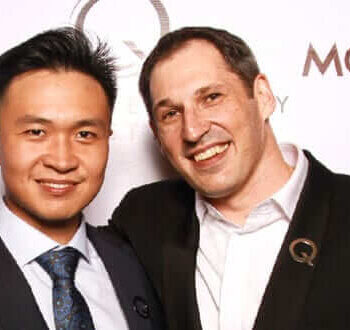Three US senators, two Democrats (Amy Klobuchar and Richard Blumenthal) and a Republican (Marsha Blackburn) have proposed a law, the Open App Markets Act, to limit the power of app stores, which could force Apple to allow users to install apps from other sources, while preventing it from forcing developers to use the official store’s billing system. In the case of Google, some of these possibilities already exist, which limits the scope of the proposal.
What are Apple’s arguments for maintaining its strict rules? Quite simple: building a relationship and a secure connection between developers and users, while protecting the experience of the latter, who can always be sure that the apps they download and use have been supervised by the company. Over time, Apple has maintained this oversight, making the possibility of jailbreaking completely marginal.
So far, so reasonable: according to Apple, if users were able to install apps from outside its App Store, they could be tricked by unscrupulous evil developers. Since it is virtually impossible for a user to monitor the code and full functionality of an app, hypothetically anything from undeclared sensor management or terminal parameters could be installed so that, for example, the app reveals data to the developer it keeps to itself. Other issues include mining cryptocurrencies without the user’s knowledge. The potential for abuse is huge, and for Apple, user protection is paramount. As things stand, the App Store ensures that an app only accesses the sensors it is supposed to, monitors what it claims to monitor, or only carries out the processes it claims to carry out. Apple’s theory, which I’m sure we can all agree with, is that the vast majority of users are incapable of protecting themselves.
But… if user protection is really so important and Apple invests so much money in monitoring the apps on its store, why does it host apps that are openly scams, and in some cases, even actively promoted by the company? Where is user protection in this case? Or perhaps what it is really protecting is its business model?
Apple’s paternalism towards its users would be fine if, indeed, the App Store really were a problem-free site. But that’s not the case, which suggests that what Apple really intends with its strict rules is not so much to protect users as to protect the model that allows it to ensure that developers must accept non-negotiable rules. Want to work outside the App Store? Either you negotiate a special deal or you may find yourself expelled from paradise. Want to sell an application without going through the supervision of the guardian of the holy apple? Forget it.
What would happen if Apple were forced to open the keys to its kingdom, and users could download an installable file from anywhere, without having to jump through Apple’s hoops, or if developers could propose business models outside the store’s commission system? Obviously, there might be more scams, cheating or problems resulting from less supervision, but in exchange, developers would have a much more open market, less rigid, and with more possibilities for innovation. For Apple, this would be a problem, since it earns about $155 billion from its App Store, while users would need to be more vigilant and ensure the quality and reliability of the applications they downloaded from other sites.
Is Apple’s paternalism towards its users justified, or is it a way to ring-fence a garden so it can monetize it as it pleases? These, and other questions, will now be debated by Congress, which if it approved the law, would see Apple forced to reorganize its model and, no doubt, to introduce terrible warnings for its users along the lines of: “are you sure you want to download this unprotected app?” But the question, beyond the problem for Apple’s business model, is whether this would lead to a more innovative, more diverse or more advantageous marketplace for users, or whether, on the contrary, it would end up generating a plethora of security issues and scams of all kinds.
Protecting your users, protecting your business model, both; a fundamental principle, or an excuse to make more money? The discussion promises to be an interesting one.






























